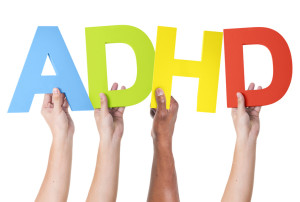
Attention Deficit Hyperactivity Disorder (ADHD) is a mental health condition that is characterized by difficulty concentrating, hyperactivity, and impulsivity. While everyone can struggle to concentrate at times or make impulsive choices, ADHD is chronic and can lead to challenges with work, school, or social activities.
In order for someone to be diagnosed with ADHD, there have to be several signs of concentration difficulty, hyperactivity, or inactivity. Some examples of concentration issues include the inability to pay close attention to details, trouble being organized, being easily distracted, or continually losing things.
Examples of hyperactivity or impulsivity include frequent fidgeting, excessive talking, or trouble engaging in activities quietly. While ADHD can look different in each person, these symptoms all lead to impairment in cognitive functioning. Cognitive functions include the ability to learn, remember information, and problem solve.
ADHD symptoms can be improved. However, these symptoms can also become more severe. One of the things that can worsen this condition is substance use, including cannabis [1].
It is important to be aware of the potential impacts of this drug on brain functioning, given how common cannabis use is. Cannabis is the most widely used drug in the U.S. [2].
Many doctors, researchers, and mental health professionals find it difficult to understand the effects of cannabis use on brain functioning [1]. Research has shown cannabis does worsen the ability to focus for someone with ADHD. However, researchers are uncertain why. There are a few theories:
Using Cannabis Can Lead to Using Other Drugs
 Research shows that people who use cannabis are more likely to begin using other drugs [1]. These drugs may negatively impact the areas of the brain that are already impacted by ADHD. Because cannabis users are more likely to have used other drugs, it is difficult to determine the effect that each substance has on cognitive functioning [1].
Research shows that people who use cannabis are more likely to begin using other drugs [1]. These drugs may negatively impact the areas of the brain that are already impacted by ADHD. Because cannabis users are more likely to have used other drugs, it is difficult to determine the effect that each substance has on cognitive functioning [1].
Frequency
In a study conducted by Ferusson and Boden (2008), age and frequency of use were important factors in figuring out the impact of cannabis on brain functioning [1]. People who used this substance more than 400 times before they were 25 years old had more ADHD symptoms than those who had not used this drug. Also, individuals with ADHD are more likely to abuse substances than people without ADHD [2].
While researchers are still trying to understand the relationship between ADHD and cannabis use, it is important to be aware that there is a link between them. Just because researchers are unaware of the exact impacts of cannabis use on ADHD symptoms, it doesn’t mean that there isn’t a risk.
There is a link between cannabis use and ADHD symptoms, researchers are still trying to figure out why. In the meantime, be aware of the risks to make the most informed brain-health choice.
References
[1] Fergusson, D.M. & Boden, J.M. (2008). Cannabis use and adult ADHD symptoms. Drug and Alcohol Dependence, 95(1-2), 90-96. https://doi.org/10.1016/j.drugalcdep.2007.12.012
[2] Greydanus, D.E., Apple, R.A., & Merrick, J. (2017). Cannabis and ADHD: A pandora’s box of perpetual perplexity. International Journal of Child Health and Human Development, 10(2), 101-105.
About the Author:
 Samantha Bothwell, LMFT, is a licensed Marriage and Family Therapist, writer, explorer, and lipstick aficionado. She became a therapist after doing her own healing work so she could become whole after spending many years living with her mind and body disconnected. She has focused her clinical work to support the healing process of survivors of sexual violence and eating disorders. She is passionate about guiding people in their return to their truest Self so they can live their most authentic, peaceful life.
Samantha Bothwell, LMFT, is a licensed Marriage and Family Therapist, writer, explorer, and lipstick aficionado. She became a therapist after doing her own healing work so she could become whole after spending many years living with her mind and body disconnected. She has focused her clinical work to support the healing process of survivors of sexual violence and eating disorders. She is passionate about guiding people in their return to their truest Self so they can live their most authentic, peaceful life.
The opinions and views of our guest contributors are shared to provide a broad perspective of addictions. These are not necessarily the views of Addiction Hope, but an effort to offer a discussion of various issues by different concerned individuals.
We at Addiction Hope understand that addictions result from multiple physical, emotional, environmental, and genetic factors. If you or a loved one are suffering from an addiction, please know that there is hope for you, and seek immediate professional help.
Published on August 17, 2020
Reviewed by Jacquelyn Ekern, MS, LPC on August 17, 2020
Published on AddictionHope.com
